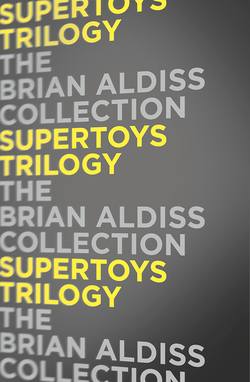Читать книгу Supertoys Trilogy - Brian Aldiss - Страница 3
Introduction
ОглавлениеThe sound of that title, ‘Supertoys Last All Summer Long’, is, on the face of it, pleasant and soothing. Yet there is sorrow in the package, for summer is followed by the frosts of autumn – sorrow, and the kinds of things that may afflict us all. Of course, we know that summer does not last forever. So what else will this story tell us? Well, of course it is the story of an artificial boy who is programmed to believe himself to be human. The tender tale also tells us about over-population, and regulation, and the progress of technology.
After it was first published, in 1969, Stanley Kubrick wanted to make a film of it, and so for a year or so a limousine would come to my house in the morning and take me to the Kubrick fortress just outside St Alban’s.
We worked away but got nowhere. Kubrick sacked me, and turned his back on me (a gesture I found he had practiced on others). Then, sadly, he died, and in the end, Stephen Spielberg took over the completion of a film by now called A.I.
Spielberg is a brilliant film director, from his first movie, Duel, onwards to the recent Lincoln. Spielberg wrote to me saying he wanted my permission to use one sentence of a letter I had written him. Around this time I now wrote the other two ‘Supertoys’ stories, and took care to use in one the sentence Spielberg had requested.
He paid me, paid me generously and without quibble. He said he would shortly be staying at the Ritz in London and invited me to have tea with him. That treat did not materialise, but the vital sentence he wanted is transformed in the final A.I. into a telling visual sequence where my small boy ventures into a factory and finds there, to his shock, a production line of bodies much resembling his own.
The flooding of New York in the movie is well enough as spectacle, but the poor animated lad’s fate and failure could have attended better to our sensibilities, as I would guess Spielberg understood.
